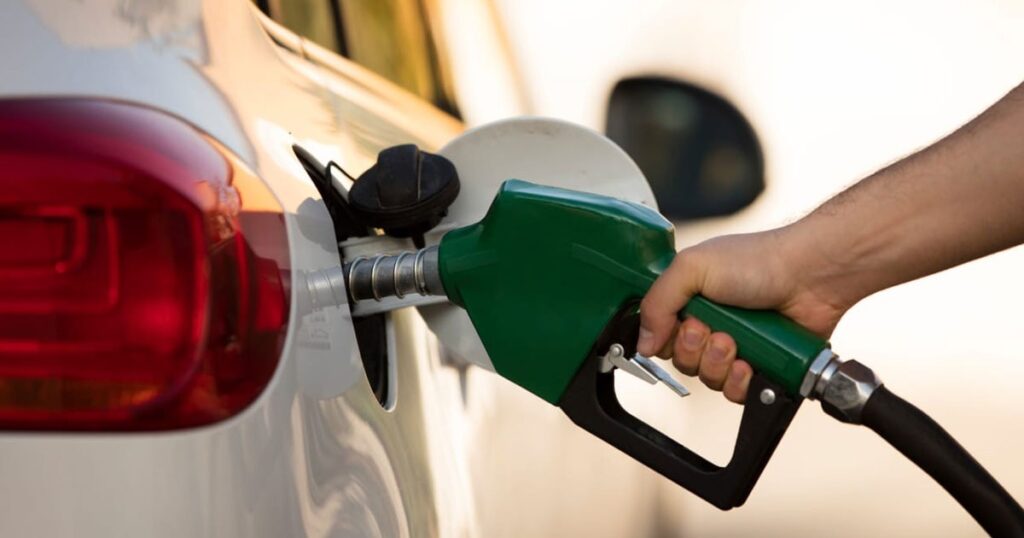If you’ve ever gotten into your car and noticed a strong gasoline odor, you may have wondered, “Why does my car smell like gas?” A fuel smell in your car is more than just unpleasant—it could be a sign of a serious issue that needs attention. If you’re unsure about the cause, seeking help from a professional auto repair Houston can help resolve the issue safely. In this post, we’ll explore the common causes of gasoline smells, explain whether it’s safe to keep driving, and help you understand how to resolve the issue. Whether you’ve recently refueled or noticed a persistent smell, we’ve got all the answers.
If you’re searching for ‘auto repair near me,’ we’re here to help — book your service today.
Is It Normal for a Car to Smell Like Gas?
In general, a faint fuel smell right after refueling might be common, but it should fade quickly. However, if the smell lingers or becomes stronger as you drive, it could be a sign of a more significant problem. A gas smell inside the cabin or around the engine is definitely not normal and could indicate a leak or malfunction somewhere in the fuel system.
If you notice a gas smell that doesn’t go away, or if it’s accompanied by performance issues, it’s essential to investigate further. Ignoring these smells can lead to potential safety risks and expensive repairs down the line. Fuel system services can help you identify and fix these issues before they escalate.
Common Causes of a Fuel Smell in Your Car
1. Loose, Damaged, or Missing Gas Cap
One of the most common and easily fixable causes of a fuel smell is a loose or damaged gas cap. When the gas cap doesn’t seal properly, fuel vapors can escape from the tank, leading to a gas smell around the rear of your car. This is a simple issue to fix—just ensure the gas cap is tightened properly or replace it if it’s cracked or damaged.
2. Fuel Line Leaks
Another common cause of fuel smells is a leaking fuel line. The fuel lines run from your gas tank to the engine, and if they crack or corrode, gasoline can leak out. This issue can often be identified by a fuel odor near the undercarriage or rear of the car, or even by visible fuel puddles under the car. If you suspect a fuel line leak, it’s best to get your car inspected by a professional, as fuel leaks are highly dangerous.
3. Leaking Fuel Injectors
Fuel injectors are responsible for delivering gasoline to the engine. Over time, these injectors can develop leaks, causing gasoline to escape and create a fuel smell under the hood. If you notice a strong gas smell near the engine or experience poor engine performance, a leaking fuel injector may be the culprit. In such cases, replacing the injector or its seals is necessary.
4. Cracked EVAP Canister or System Leak
Modern vehicles are equipped with an Evaporative Emission Control (EVAP) system that captures and stores fuel vapors. If the charcoal canister in this system becomes cracked or damaged, it can release fuel vapors into the air, leading to a strong gas odor. You may also notice the check engine light turning on if the EVAP system is malfunctioning. A mechanic can replace the canister or fix any related issues to resolve the smell.
5. Fuel Tank Leaks or Corrosion
Fuel tanks are designed to last, but over time, they can develop cracks, rust, or other issues. If your fuel tank is leaking, you’ll likely smell gas near the rear of your vehicle. Fuel tank leaks require immediate attention, as they present a serious safety hazard. In most cases, the fuel tank will need to be repaired or replaced.
6. Spilled Gas After Refueling
Sometimes, the issue isn’t mechanical. If you overfill your gas tank or accidentally spill gasoline, the smell may linger for a while. If the smell started right after you filled up, it’s likely just a spill, and you can clean the area with water and soap or let it evaporate. However, if the smell persists, it may indicate a different issue.
7. Worn Out Seals and Gaskets
As vehicles age, the rubber seals and gaskets in the fuel system can degrade. These seals prevent fuel vapors from escaping, but once they wear out, you might notice a gasoline smell around the engine or fuel lines. If you have an older vehicle, it’s a good idea to have these seals replaced during routine maintenance to avoid potential fuel leaks.
Is It Safe to Drive If My Car Smells Like Gas?
It’s important to understand that a gasoline smell in your car is never something to ignore. Gasoline is highly flammable, and even a small leak could lead to a fire or explosion, especially near the engine or electrical components. If the gas smell is strong or persistent, you should not drive the vehicle until the issue is fixed. Additionally, inhaling gasoline fumes over time can be harmful to your health, causing symptoms like dizziness, headaches, or nausea. It’s always best to err on the side of caution and get your car inspected immediately.
What Should You Do If You Smell Gas in Your Car?
- Don’t smoke or use electronics nearby.
- Ventilate the cabin by opening windows.
- Check and tighten the gas cap.
- Look for leaks under the car.
- Contact a mechanic if the smell continues.
Need Help? Visit Eric’s Car Care in Houston, TX
If you live in Houston, TX, and are experiencing a fuel smell in your car, don’t hesitate to visit Eric’s Car Care. Our expert team of certified technicians is ready to diagnose and fix any issue, big or small, ensuring that your car is safe and running smoothly. We’ve been serving the Houston community for years with reliable, trustworthy service. Whether it’s a fuel system issue or another problem, Eric’s Car Care has the experience and tools to get you back on the road quickly.
Schedule your appointment today by calling 713-667-9293 or stop by our shop for fast, friendly service. Don’t wait—your safety is our priority.

